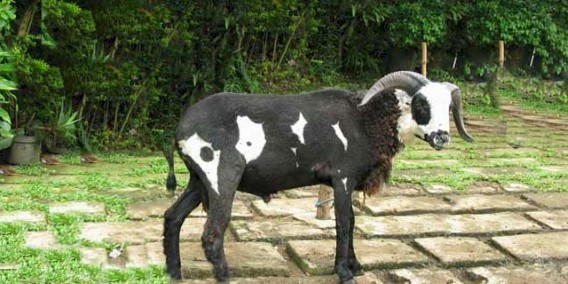West African Dwarfs, also known as Djallonkes, are the predominant sheep breed across southwest to central Africa, ranging from Senegal to Chad, Gabon, Cameroon, and the Republic of the Congo. They are exceptionally well adapted to thrive in a variety of environments, including humid forested areas, sub-humid regions, and savannahs. Primarily raised for meat production, these sheep exhibit distinctive characteristics that make them highly suited to their natural habitats.
Typically, West African Dwarfs are observed in white or piebald colorations, with some variations such as skewbald (tan on white) and blackbelly patterns. A specific type known as Kirdi is selectively bred to exhibit entirely black coloration.
The rams of this breed weigh approximately 37 kg (82 lb) and are characterized by a well-developed throat ruff. They are usually horned, with horns that are wide at the base, curving backward, outward, and then forward again, with a maximum of one and a half coils. On the other hand, ewes weigh around 25 kg (55 lb) and are typically polled (hornless), although some may have slender short horns. They feature short, pendulous ears, a long and slender neck, a deep chest, short legs, a long and dished back, and a tail that reaches the hocks.
In terms of reproductive performance, West African Dwarf ewes typically produce 1.15 to 1.50 lambs per lambing on average. They exhibit a high tolerance to trypanosome, a parasite commonly found in their native regions, further enhancing their resilience in challenging environments.

